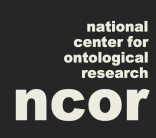Citizens and politicians are both demanding better and more efficient government. One area of improvement that has been identified is in the interoperability of various governmental departments and agencies. If different parts of government cannot communicate with each other, then redundancies and inefficiencies emerge from this lack of interoperability. Yet in order to interoperate, governmental departments and agencies need a common framework and vocabulary to exchange data, whereas typically they have very different systems using different terms for the same thing.
Furthermore, a number of government agencies have high volume of data that needs to be analyzed. For example, national security agencies currently have an unprecedented amount of data that needs to be analyzed to identify security threats. Yet this high volume of data makes it nearly impossible for human agents to analyze all of this data and to identify connections within the data. Computers can help, but computers need to have a structure imposed on the raw data in order for them to process it.
Both of these problems can be address using formal ontology. It can provide a common vocabulary to allow different departments and agencies to communicate effectively with each other. Furthermore, it offers a computational and semantic framework that can allow computers to process large volumes of data, to provide human analysts with better information.
To start exploring how formal ontology could make government more effective, see the following:
Training in ontology development
Technologies for ontology implementation
